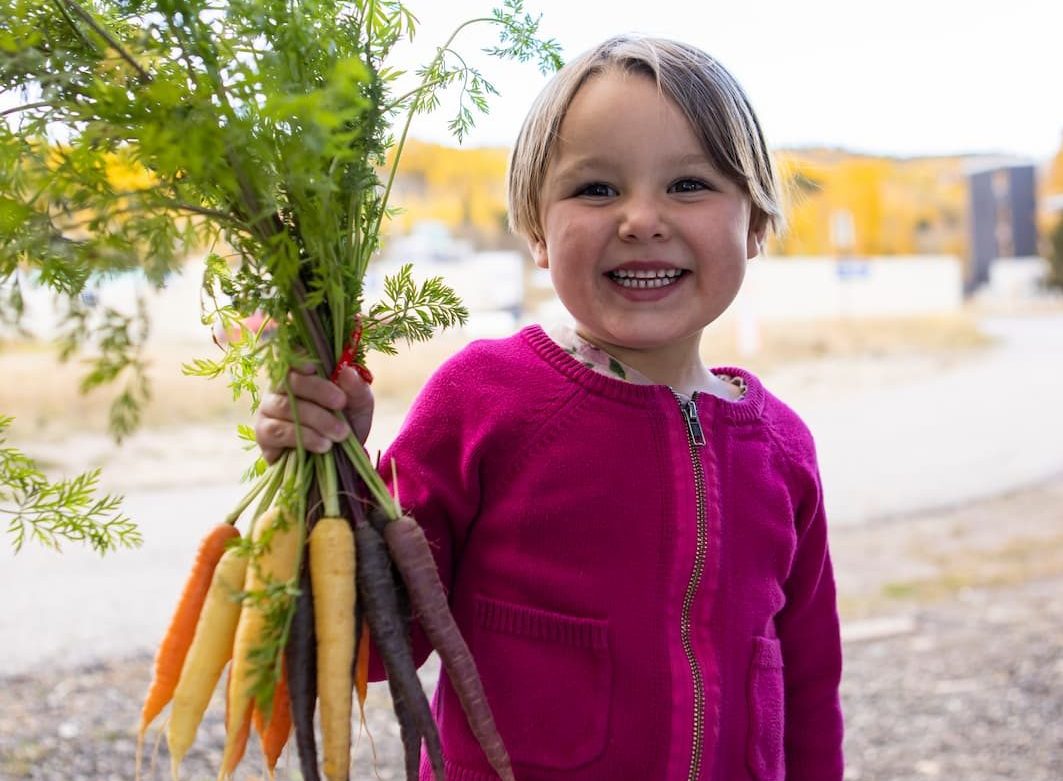
Dear Eartha,
As someone who is a total newbie to high-elevation gardening, I struggled with last year’s attempt (it was a colossal failure). What advice do you have to ensure a more fruitful season this year?
If you live in the mountains, you already know that gardening at high elevations can be tricky. At 9,000 feet, the growing season is short, the soil is thin and the weather can be unpredictable. But don’t let these challenges discourage you from growing your own food and enjoying the beauty of a garden. With a little planning and some helpful tips, you can create a thriving garden … even at elevation.
Choose the right plants
Real talk: You’re not going to be growing peaches in Summit County. But with the right approach to plant selection, you can still achieve a thriving garden. In any environment, it’s crucial to choose plants that are adapted to the conditions. Opt for cold-hardy, drought-tolerant varieties that can withstand the intense sunlight and strong winds. Some excellent choices include root vegetables like carrots and beets, which can handle the cool temperatures and leafy greens like kale and chard, which can thrive in the shorter growing season. Herbs like thyme and sage are also great options, as they can add flavor to your dishes while adding beauty to your garden.
Know your growing season
At 9,000 feet, the growing season is a lot shorter compared to lower elevations. To maximize the time you have, it’s important to start planting early. Begin by sprouting your seeds indoors in early spring, and then transplant them outside once the weather warms up. To further extend your growing season, consider using cold frames and hoop houses. These structures protect your plants from frost and help to create a more hospitable growing environment, allowing you to grow a wider variety of plants over a longer period of time, thus producing a greater harvest.
Amend your soil
At high elevations, the soil is often thin and lacking in nutrients. Adding organic matter, such as compost and well-rotted manure, is essential to improving soil fertility and water retention. Luckily, locally-sourced compost is available at the Summit County Resource Allocation Park located at located at 639 Landfill Road south of Dillon. This compost is made from a combination of food scraps, biosolids and wood chips from beetle-killed pine trees. The compost is certified by the Environmental Protection Agency for all uses, including herbs and vegetables. Additionally, the park chooses to certify their product through the United States Composting Council’s Seal of Testing Assurance, ensuring that the compost meets strict requirements. With access to such high-quality compost, creating a thriving garden at high elevations has never been easier.

Water smart
In our environment, water is a precious resource that must be used efficiently. Consider installing drip irrigation systems or soaker hoses to water your plants effectively while minimizing water waste. Additionally, using mulch around your plants can help retain moisture in the soil and reduce water loss through evaporation.
Speaking of watering, if you are struggling to keep your lawn green and healthy, you may be overwatering or even worse, watering the sidewalk. Sign up for an irrigation assessment to help address these issues. The High Country Conservation Center’s Water Smart program can connect you with certified irrigation professionals who can assess your irrigation system and provide recommendations to keep your yard beautiful without wasting water.
Protect your garden
When you share habitat with wildlife like deer, elk and rabbits, these fuzzy neighbors can be a serious threat to your garden. Use fencing or netting to protect your plants from browsing animals, and try planting some natural deterrents like lavender or other strong-smelling herbs. It’s important to note that some wildlife, such as bees and butterflies, play an important role in pollinating plants and supporting a healthy ecosystem. Welcome these beneficial species to your garden by planting native flowers and creating pollinator-friendly habitats.
Gardening at high elevations can be challenging, but with these tips and tricks, you can create a beautiful and productive garden that will thrive in the mountain environment. And take advantage of the incredible resources available through the High Country Conservation Center, such as the High Altitude Gardening Tips document. With a little extra effort and the right approach, gardening at 9,000 feet can be a rewarding, fulfilling and delicious experience. Happy planting!
